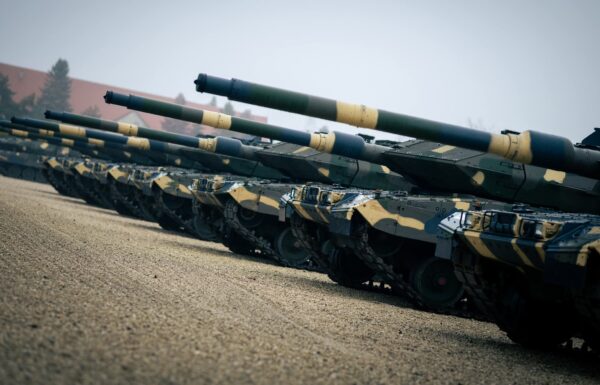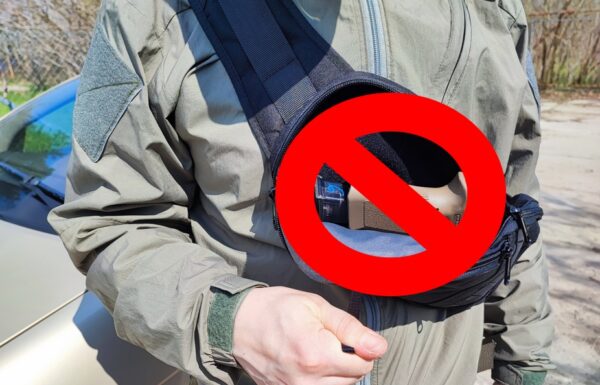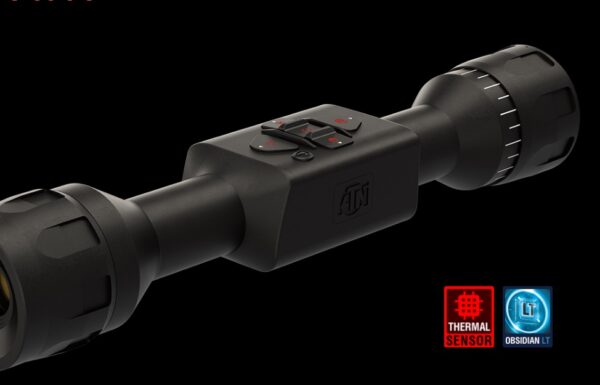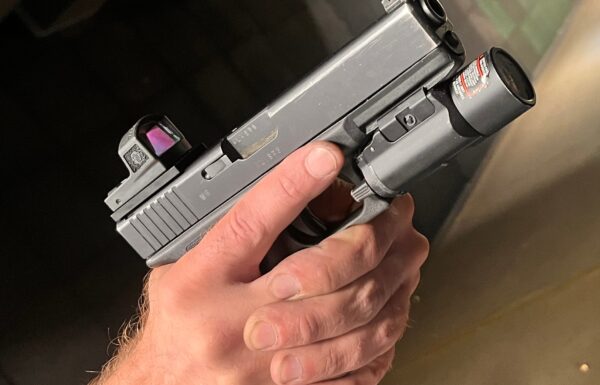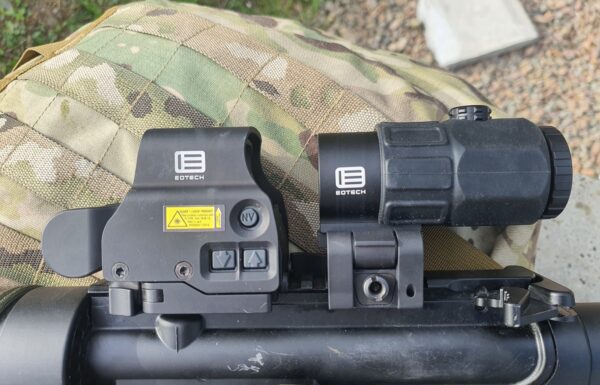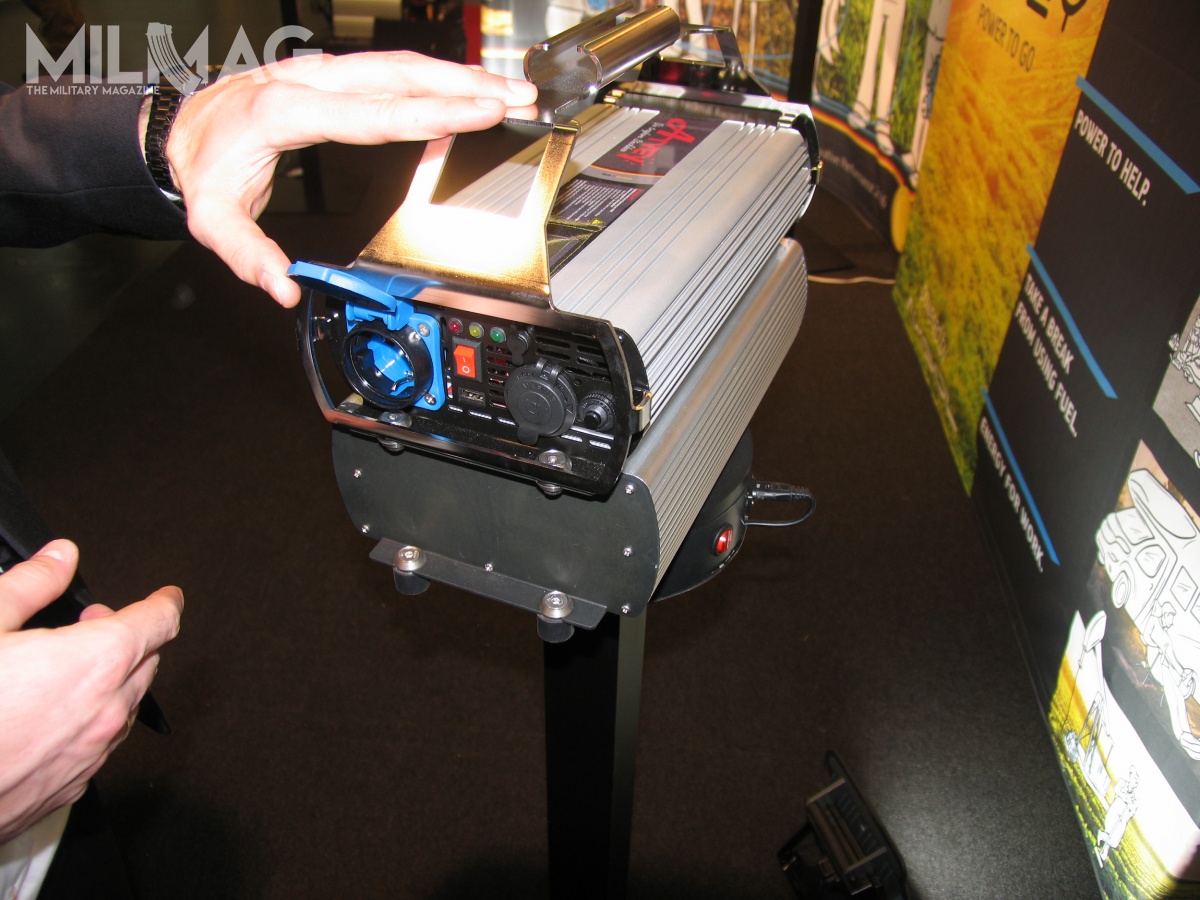ARVEY, developed by Axsol company, is a mobile energy storage system, delivering clean and stable electricity for multitude of civilian and Law Enforcement uses. ARVEY system, developed and produced by Axsol from German Obergebra, is a mobile energy storage compatible with many electricity generating devices. The prototype received Federal Award in Germany as an Outstanding Innovation and was preseted on the show floor of EnforceTac 2018.
ARVEY weights 11 kg in this configuration. Unit is compact and the handle is solid enough for efficient transport. /Photo: Joachim Raźny
The device consists of electronic inverter/charge controller and a Lithium-Ion battery. The system is capable of producing 1000 W of stable, clean electricity with a possibility of up to 2000 W peaks for a few seconds. Generated energy is a pure sinewave AC and the inverter can provide 230 or 115 Volts (depending on the device type). The electronic module not only controls the discharge but is also an efficient charge controller capable of accepting inputs from source like photovoltaic cells, windmills, 12 V DC charger, etc. The outputs include 230/115 V socket, 12 V socket and 5 V USB port.
Standard ARVEY`s energy storage is a 24 V Li-Ion battery with 480 Wah (20,000 mAh at 24 V). The whole system weights 11 kg and is nicely fixed together and comes with a carrying handle. Weight of the unit consisting the controller and single battery is 11 kg. Interestingly, system is ready for battery stacking and supports up to 4 batteries at the moment. This however would impact it’s mobility.
The presentation at EnforceTac is directed to Law Enforcement and Security companies with ARVEY being configured for vehicle use and equipped with a roof mounted, magnetic photovoltaic cell. System’s installation is quick with just one cable coming from the roof. If power is needed elsewhere, the battery/electronic assembly can be carried without the need to disturb the electricity generating devices.
ARVEY can be used for various tasks, such as powering monitoring equipment is remote areas, powering medical instruments in disaster zones, recharging drones, providing reconnaissance teams with power without vehicle engine running etc. System also seems useful and capable for private emergency preparations, off-grid living, overland vehicle travel or remote work with power tools. For the prepping purposes, ease of deployment alone makes it an interesting alternative for home-brew energy backup systems.


